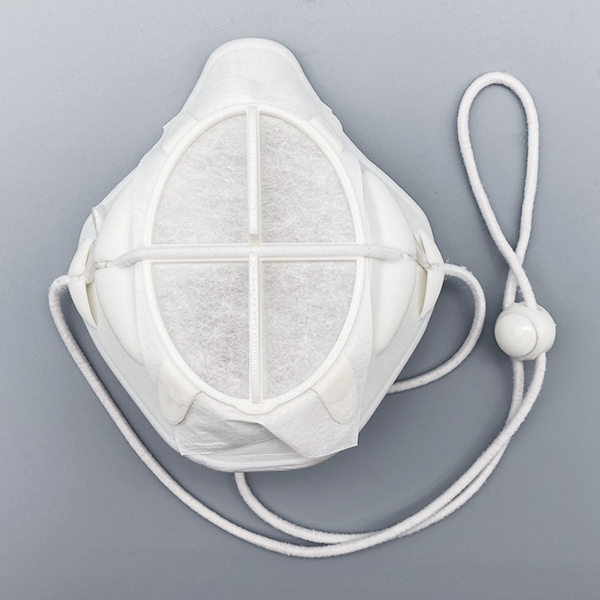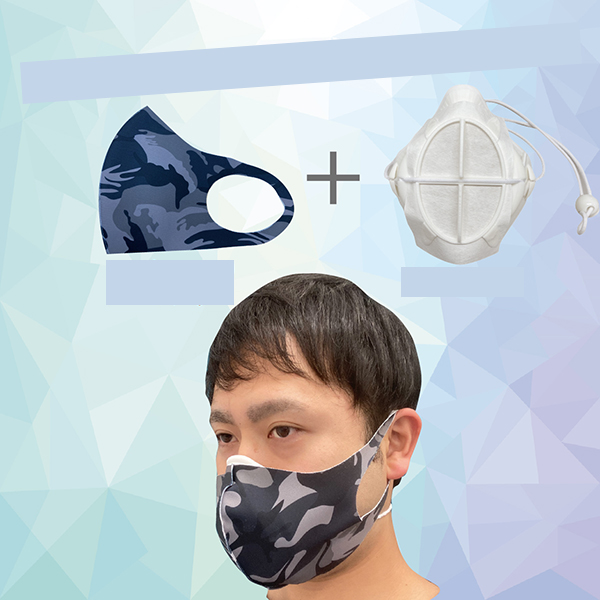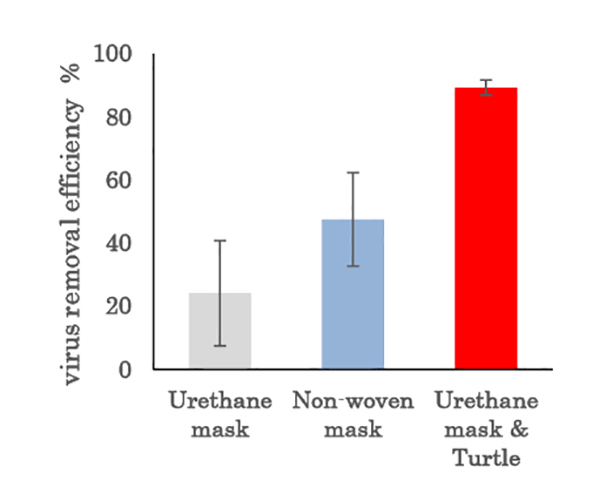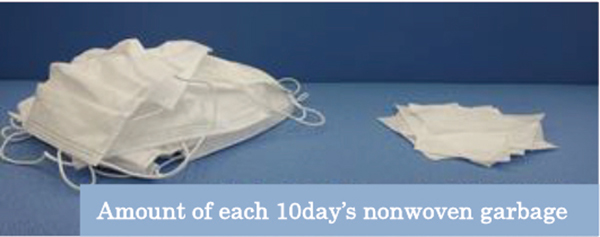Mitsui Chemicals Launches Sales of New Inner Mask With Nagoya University and Spinoff Venture
Substantially improves virus capture efficiency when combined with the user’s regular mask
2021.04.26
Mitsui Chemicals, Inc.
Mitsui Chemicals, Inc. (Tokyo: 4183; President & CEO: HASHIMOTO Osamu) today announced the sales launch of Turtle, a new inner mask developed together with Professor HORI Katsutoshi of the Graduate School of Engineering at Nagoya University*1 and Friend Microbe Inc. (President & CEO: NISHIDA Katsuhiko),*2 a Nagoya University spinoff venture that is handling production and sales. In addition, a cosmetology group that has a large number of stores in the Tokai area has decided to have hairdressers and staff wear Turtle at their flagship store.*3
Turtle follows the three partners’ July 2020 development of the θ (Theta) 3D-printed mask,*4 which Friend Microbe continues to produce and sell. Representing an evolution from θ (Theta), the new Turtle inner mask is designed to be used underneath a user’s regular cloth or urethane mask. Like θ (Theta), Turtle consists of a reusable body and a disposable filter, the replaceable nonwoven fabric*5 for which is supplied by Mitsui Chemicals.
Double-masking and the use of inner masks have become more common now that the supply–demand balance of masks in Japan has improved. However, with the virus removal efficiency of cloth and urethane masks each alone generally believed to be low, questions have arisen about their effectiveness in preventing viral infection. A recent independent evaluation by Nagoya University’s Professor Hori found that wearing Turtle underneath a urethane mask substantially improved the effectiveness of masks in keeping out viruses.
Mitsui Chemicals, Nagoya University and Friend Microbe aim to continue contributing to public health and safety by promoting Turtle’s widespread use and reduce the risk of viral infection.
Illustration of Turtle Body and Appearance When Worn


Verified as Offering Greater Virus Capture Efficiency
(Urethane mask alone: 24% → urethane mask + Turtle: 89%)
Professor Hori evaluated Turtle’s performance using a mannequin fitted with a device of his own creation for analyzing mask performance. The results showed that the virus removal efficiency of urethane masks alone was about 24 percent and that of ordinary nonwoven masks around 50 percent. In contrast, when worn under a urethane mask, Turtle kept out almost 90 percent of the virus.
While urethane masks are generally regarded as offering poor mask performance when worn alone, this test proves that their virus removal effectiveness can be substantially boosted to a level beyond that of conventional nonwoven masks when worn over Turtle.

Turtle’s Other Features
1. The reusable resin body is easy to wash and keep hygienic.
2. The use of resin for the body cuts the quantity of nonwoven fabric required to 10 percent of that needed for conventional masks.
3. The inner mask’s three-dimensional design minimizes the area in contact with the skin, reducing perspiration and makeup soiling.
4. The three-dimensional design creates space around the mouth, ensuring greater comfort when eating while wearing a mask.
5. The inner mask improves airtightness, reducing the tendency of glasses to fog up.
Environmentally Friendly
Increased waste from disposable masks has recently emerged as a problem. Made from biodegradable polylactic acid (PLA) resin, Turtle is environmentally friendly, as it is reusable and requires just 10 percent of the quantity of disposable nonwoven fabric used in conventional disposable nonwoven masks.

Retailers and Price
Turtle is available for purchase from Friend Microbe’s online store, as well as from Amazon and Yamada Mall. A set consisting of a Turtle body and 30 days’ supply of replaceable nonwoven filters costs 2,750 yen, including tax.)
Further Information
*1Professor HORI Katsutoshi, Graduate School of Engineering, Nagoya University
*3See Nagoya University release
*5Reports on tests by Nelson Laboratories, LLC attest to the viral filtration efficiency (VFE) and particle filtration efficiency (PFE) of the nonwoven fabric used in Turtle.
